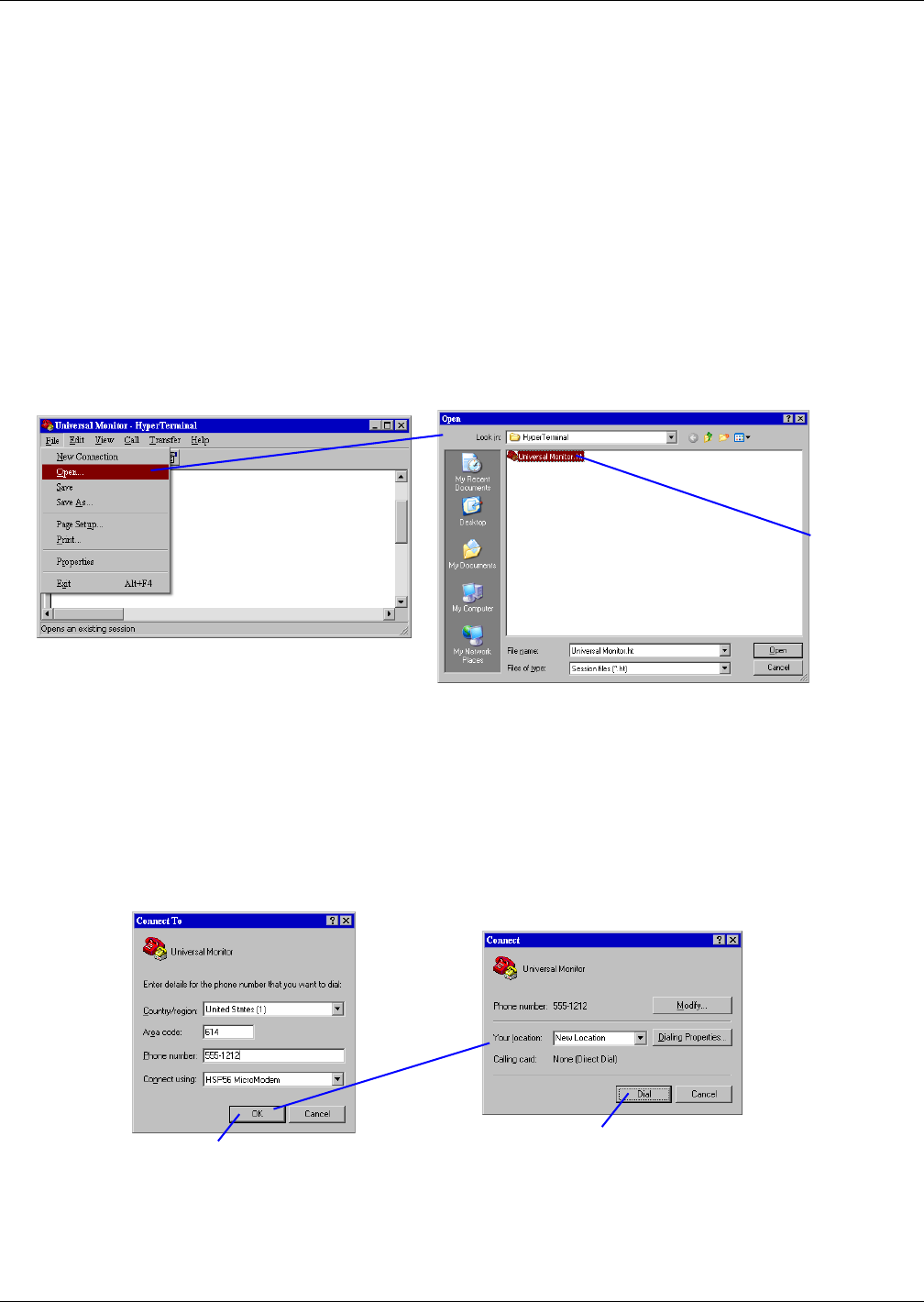
Connecting to the Service Terminal Interface
90
A.2.5 Connect to the Service Terminal Interface
After creating and setting up a connection, use a communications program such as HyperTerminal to
access the Universal Monitor’s Service Terminal Interface.
1. Verify communications connections between the remote computer and the Universal Monitor:
a. For direct connection (via RS232 port):
• Connect a null modem cable from the computer’s COM1 port to the Universal Monitor’s
RS232 port (for location, see 4.6.1 - RS232 Connector).
b. For remote connection (via modem):
• Verify modem connections between the remote computer and the Universal Monitor. The
remote computer should have connectivity through a telephone line, high-speed cable or an
Ethernet. The Universal Monitor must have a telephone line connected to its RJ11 port (for
location, see 4.6.2 - Phone Line Connector).
2. Start the HyperTerminal program—click on the Start button, then on Programs, then
Accessories, then Communications, and finally HyperTerminal.
3. Open the Universal Monitor connection created in A.2.2 - Create a Connection. To do this, click
on File, then on Open, as shown below.
4. In the Open window, shown above right, select the file name—Universal Monitor.ht in this
example—and then click on the Open button.
5. Follow the steps below to display the Main Menu of the Service Terminal Interface:
a. For direct connection (via RS232 port):
• Press Enter (or Escape) to initiate communication and bring up the Main Menu.
b. For remote connection (via modem):
• The Connect window opens, as shown below left. Click the OK button.
• In the Connect window, below right, click Dial.
• If the dialing attempt is successful, the Main Menu appears.
For more information on the Universal Monitor’s options:
• See A.3 - Overview of Menus for examples of the Service Terminal Interface screens.
• See Table 35 to locate step-by-step instructions for each Universal Monitor function.
Click on the
file name -
for example,
Universal
Monitor.ht
OK button
Dial button
